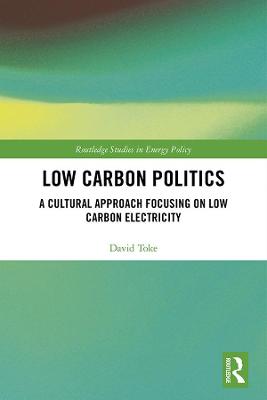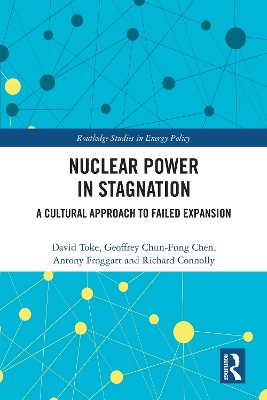Routledge Studies in Energy Policy
2 total works
Low Carbon Politics focuses on how policies and institutions have influenced the deployment of renewable energy and nuclear power in the electricity sector. Cultural theory is used to analyse this.
Egalitarian pressures have had a profound influence on technological outcomes, not merely in securing the deployment of renewable energy but also in increasing the costs of nuclear power. Whereas in the 1970s it might have been expected that individualist, market based pressures allied to dominant hierarchies would deliver nuclear power as the main response to problems associated with fossil fuels, a surprising combination has emerged. Egalitarian and individualist pressures are, together, leading to increasing levels of deployment of renewable energy. This work finds that electricity monopolies tend to favour nuclear power whereas competitive arrangements are more likely to lead to more renewable energy being deployed. It covers developments in a number of countries including USA, UK, China, South Africa and also Germany and Denmark.
This book will be of great relevance to students, academics and policymakers with an interest in energy policy, low carbon politics and climate change.
Nuclear Power in Stagnation
by David Toke, Geoffrey Chun-fung Chen, Antony Froggatt, and Richard Connolly
This book studies the extent to which nuclear safety issues have contributed towards the stagnation of nuclear power development around the world, and accounts for differences in safety regulations in different countries.
In order to understand why nuclear development has not met widespread expectations, this book focusses on six key countries with active nuclear power programmes: the USA, China, France, South Korea, the UK, and Russia. The authors integrate cultural theory and theory of regulation, and examine the links between pressures of cultural bias on regulatory outcomes and political pressures which have led to increased safety requirements and subsequent economic costs. They discover that although nuclear safety is an important upward driver of costs in the nuclear power industry, this is influenced by the inherent need to control potentially dangerous reactions rather than stricter nuclear safety standards. The findings reveal that differences in the strictness of nuclear safety regulations between different countries can be understood by understanding differences in cultural contexts and the changes in this over time.
This book will be of great interest to students, scholars, and policymakers working on energy policy and regulation, environmental politics and policy, and environment and sustainability more generally.

